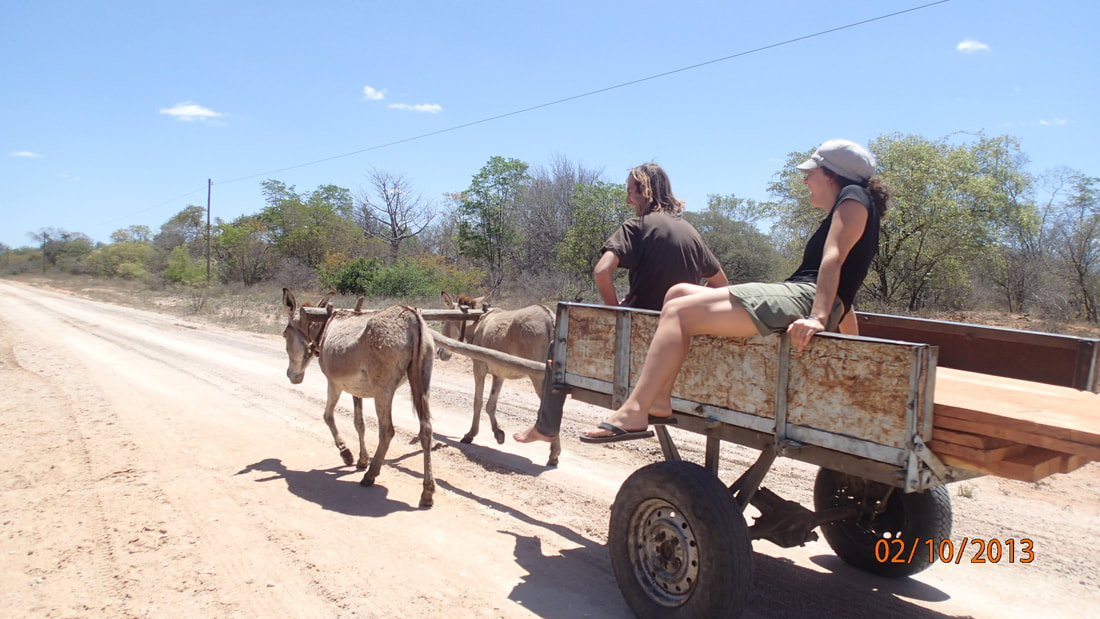|
Just a few days after my arrival in Mauritius, a Facebook message arrived from a friend in South Africa asking me to help him with a Winterdodger project in Lake Sibaya. Four students were coming from a French University to do conservation work to support Lake Sibaya - South Africa's largest freshwater lake. After some research and consideration, I decided to take the plunge. My friend needed someone with mapping experience (& equipment), and I love teaching & couldn't wait to get back to SA! Not a bad combo, and there were also a few safaris to Tembe & St Lucia on the books. After some negotiation on room/board/sleeping arrangements, I was booked and ready to go! I flew into Durban on Valentine's Day and had a great reunion with an old friend. We had spent 3 months traveling through southern Africa in 2013, and it was wonderful to catch up (there may have been a bit of Windhoek lager and tequila involved as well!). We had a full day before the students arrived, so we explored Durban and planned the next few weeks. As it turned out, this would be the first group of students to arrive for the Save Sibaya project, so there was quite a clean slate! General plan? Map animals, nests, plants, roads, houses, paths - everything, really - in and around Lake Sibaya with the goal of slowing the draining of the lake, saving the remaining wildlife strengthening the community, and protecting the area from further degradation. Part of the area around the lake forms part of the Isimangaliso Wetlands Park, however much of the area remains unprotected. The lake is threatened by development, excessive poaching, and reduction of water levels due to regional consumption. Blue gum trees are a major contributor to this, as they consume 80 to 200 liters of water PER DAY. The students flew in the next day , and they were very excited to be greeted by the Landie at King Shaka International. They called themselves 'Team Wild Africa', and would spend the next 4 weeks building a comprehensive database of species around Lake Sibaya and also exploring the many national parks and reserves nearby. It was a four hour trek to the 'compound' at Sibaya, so after collecting supplies at the big mall we headed off! The first week we focused on collecting data on cycads - these ancient plants have a long fossil history, are slow growing, and can be sold for high dollar on the market. Once mapped, these plants can then be protected from poaching. After basic data collection skills were learned, the students began collecting data and GPS locations on everything we could find on our hikes and drives through the area - invasive species, homesteads, bird nests, elephant shrew holes, hippo paths - you name it! There were some challenges, as none of our team speaks French and the students had very little English, but after some hurdles we got our points across! Another reason to work on my French! The weekends we had quite a few excursions. We did game drives in Tembe Elephant Park, did an overnight and a boat safari in St. Lucia, visited a cheetah rehab facility, did a safari in Mkhuze National Park, and spent time on the beaches around Sodwana Bay. During one of our visits we were fortunate to see a bull elephant crossing the road, but one of the noisier students let out a yell ... in that moment I truly thought we were goners as the elephant peered into my soul and began to trumpet. Afraid does not even begin to describe how I felt! Lucky for us he finally kept going across the road, but we promised to bring duct tape on any further safaris for noisy students! Yes, there are dangers out there... No monkey bites, but I was dinner for a spider this trip, and have a nice new scar souvenir. Lucky for me, I did not host any spider eggs or awake to them crawling out of my leg! Yikes. The tent was scrubbed of webs after that experience! I only had a month before I had to return to Mauritius for more work with the University, but I was really glad I went. It's such a beautiful region, and I think we have the opportunity to have a positive impact on the area. It was an enlightening beginning for the Save Sibaya Project team, of which I am now honored to be a part. There were many challenges with the programming and lessons learned, but overall it was a success and a positive experience for the students. I believe 2 of them are already planning a return trip to our camp! I fell in love with the camp and the project, and look forward to returning in the fall for more conservation mapping work - this time through South Africa, Mozambique and into Malawi for October. Stay tuned! If you want to participate in Save Sibaya we are accepting volunteers and donations to help with supplies, camp construction, and work at the community center! Contact me for any additional details on current projects!
0 Comments
|
ABOUTCombining a passion for travel, the desire to make a difference & a love of maps, MaggieMaps was born. PRESSUnless otherwise noted, all prose, poetry, maps and photography posted on this blog are Copyright 2013 Maggie Maps
Archives
March 2020
Categories
All
Blogs I like |


 RSS Feed
RSS Feed